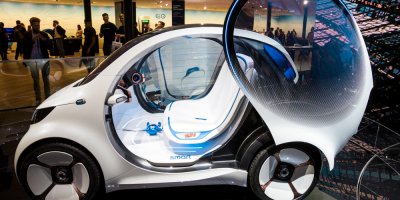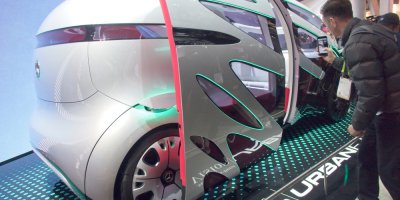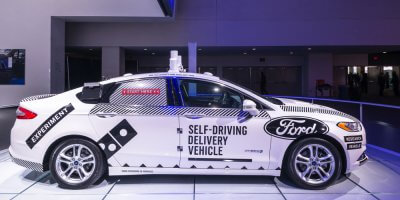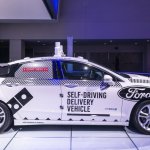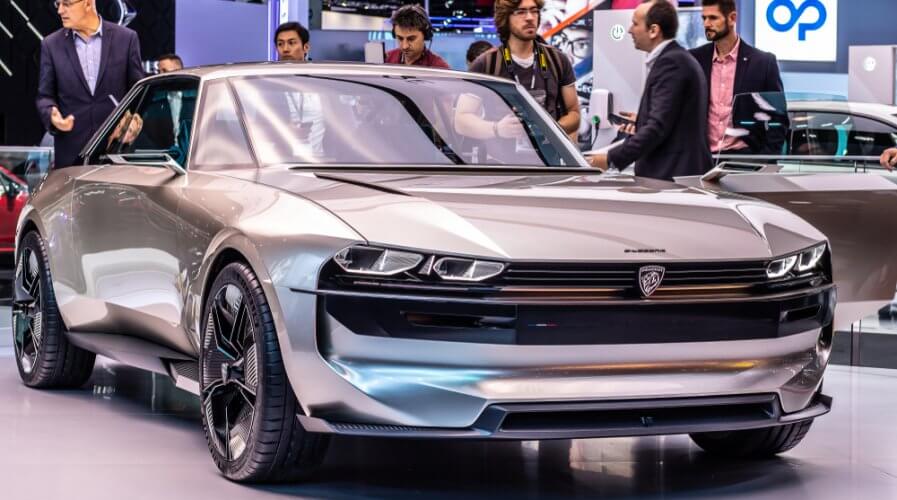
Tomorrow’s driverless cars could be offered as a service. Source: Shutterstock
Future of the automotive industry? Data-driven and services oriented
TYPICALLY, cars have an average life expectancy of 8 years or 150,000 miles (240,000 kilometers). In the autonomous future, when they’re running constantly, these cars might not last very long — without proper servicing.
With SAE level 5 autonomous cars becoming a reality, the question that most businesses, including fleet owners, last-mile logistics and transport companies, and after-market services providers among others are asking is what really is the future of the automotive industry?
Automotive industry behemoths such as Ford, GM, Toyota, BMW, Mercedes, Volvo, and Nissan are all competing to not only bring their first set of driverless cars to the market but also to reshape the industry and the future of mobility as we know it.
According to various technology and automotive experts, the future of the autonomous industry will be data-driven and services oriented.
Millennials, in one survey after another, indicate a preference to remain free of the burden that owning a car brings and choose to use on-demand cab services such as Uber, Grab, and Lyft.
Gen Z, too, follows suit, although they do indicate a strong inclination to save the planet and hence, choose services that have a minimal impact on the environment — such as bike sharing and public transportation.
This is also indicative that the future of vehicle sharing will be electric (or hybrid), given the rising demand and preference despite additional costs.
However, overall, what this means is that automakers across the world need to focus on a new future that isn’t driven by car sales — but by new metrics such as “access to cars” and “hours of use”.
Your favorite car, as-a-service
Some of the smartest companies in the world are preparing for this future. They’re building platforms that appeal to a wide user group and create loyal fans, all of whom could be upgraded to a new, smarter, or cheaper mode of transport once autonomous cars make the debut.
Ford, for example, started a bike sharing service called Ford GoBike. Their offering is by no means unique — there are plenty of platforms these days with similar offerings, but the company is definitely building a following and preparing for a head-start once its new driverless cars hit the roads.
While Ford’s appeal is primarily geared towards the Gen Z, GM aims to woo millennials with their offering.
The owner of Chevrolet, Cadillac, GMC, and Opel, with its headquarters in Detroit, Michigan launched a peer-to-peer car-sharing program way back in 2016.
The pilot was dubbed Maven and allows people to rent cars. The platform has since been expanded to allow GM car owners to rent out their personal vehicles (via Peer Cars) — and more recently, the company has announced that will allow vehicles from other automakers to be shared via the app.
Essentially, what this indicates is that automotive industry leaders are quite keen on building platforms that might help them offer autonomous cars as-a-service in the near future.
Why should automakers do all the work?
Truth be told, doing all the work carries potentially significant financial rewards for automakers in a world that is driven by autonomous cars.
According to a new survey of more than 5,500 consumers from around the world, 59 percent are awaiting their arrival with anticipation. About 47 percent of the respondents also said they believe self-driving cars will give them a sense of freedom.
Further, it highlights that within the next five years, 52 percent would prefer to be driven in a self-driving car than a normal one. That’s an exciting finding and highlights the strong positive sentiment in the market among consumers.
Obviously, uptake will be high — especially via platforms that allow access to these vehicles as-a-service.
Automakers can definitely earn revenues from their vehicles when they offer them on platforms that they (or other players in the market) own, bolstering their existing business model.
However, they will also have access to a lot of customer-related, product, and market data, especially if they offer their autonomous vehicles as-a-service, all of which can help them boost revenues.
Helping in-car entertainment, healthcare, and other service providers design better solutions, for example, without violating the rights of users could help automakers gain special privileges and/or secure additional revenue streams.
At the end of the day, there are plenty of exciting opportunities that the future of the automotive industry holds — but automakers must focus on being data-driven and services oriented if they want to avoid disrupting their market share or disappointing their customers in any way.
READ MORE
- Ethical AI: The renewed importance of safeguarding data and customer privacy in Generative AI applications
- How Japan balances AI-driven opportunities with cybersecurity needs
- Deploying SASE: Benchmarking your approach
- Insurance everywhere all at once: the digital transformation of the APAC insurance industry
- Google parent Alphabet eyes HubSpot: A potential acquisition shaping the future of CRM



